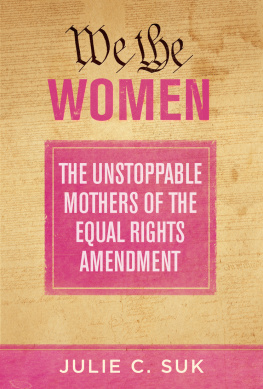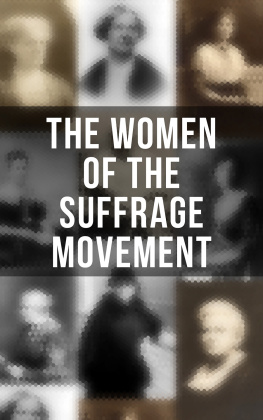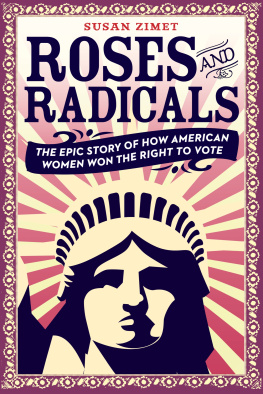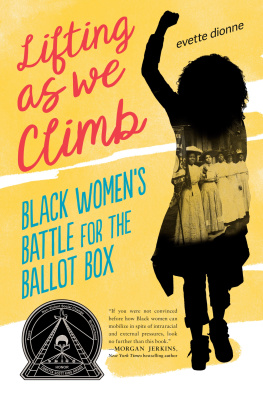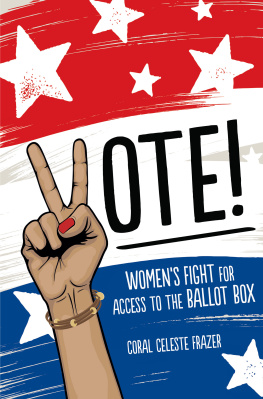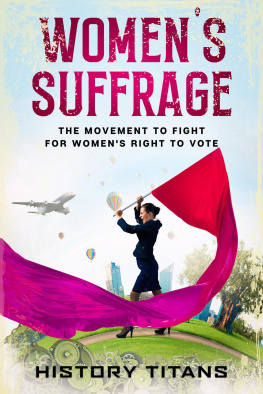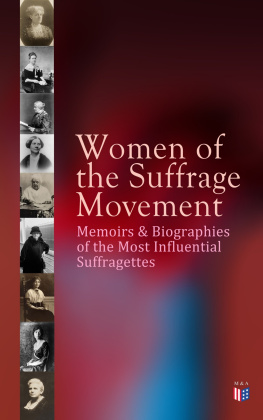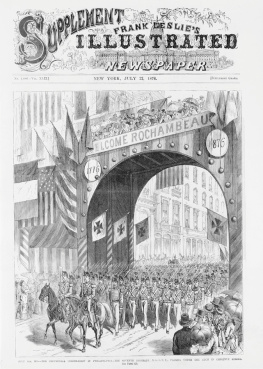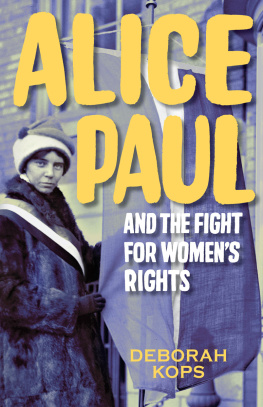Martha S. Jones is the political historian of African American women. And this book is the commanding history of the remarkable struggle of African American women for political power. The more power they accumulated, the more equality they wrought. All Americans would be better off learning this history and grasping just how much we owe equalitys vanguard.
Ibram X. Kendi, National Book Awardwinning author of Stamped from the Beginning and How to Be an Antiracist
You cannot tell the history of modern democracy without the history of Black women, and vibrating through Martha S. Joness prose, argument, and evidence is analysis that takes Black women seriously. Vanguard brilliantly lays bare how a full accounting of Black women as powerful political actors is both past and prologue. Jones has given us a gift we do not deserve. In that way she is as bold and necessary to our understanding of ourselves as the women in this important work.
Birthright Citizens: A History of Race and Rights in Antebellum America
All Bound Up Together: The Woman Question in African American Public Culture, 18301900
Copyright 2020 by Martha S. Jones
Cover design by Francine Kass
Cover image 2019 Charly Palmer
Cover copyright 2020 Hachette Book Group, Inc.
Hachette Book Group supports the right to free expression and the value of copyright. The purpose of copyright is to encourage writers and artists to produce the creative works that enrich our culture.
The scanning, uploading, and distribution of this book without permission is a theft of the authors intellectual property. If you would like permission to use material from the book (other than for review purposes), please contact permissions@hbgusa.com. Thank you for your support of the authors rights.
Basic Books
Hachette Book Group
1290 Avenue of the Americas, New York, NY 10104
www.basicbooks.com
First Edition: September 2020
Published by Basic Books, an imprint of Perseus Books, LLC, a subsidiary of Hachette Book Group, Inc. The Basic Books name and logo is a trademark of the Hachette Book Group.
The Hachette Speakers Bureau provides a wide range of authors for speaking events. To find out more, go to www.hachettespeakersbureau.com or call (866) 376-6591.
The publisher is not responsible for websites (or their content) that are not owned by the publisher.
Library of Congress Cataloging-in-Publication Data
Names: Jones, Martha S., author.
Title: Vanguard : how black women broke barriers, won the vote, and insisted on equality for all / Martha S. Jones.
Description: First edition. | New York : Basic Books, 2020. | Includes bibliographical references and index.
Identifiers: LCCN 2020006087 | ISBN 9781541618619 (hardcover) | ISBN 9781541618602 (ebook)
Subjects: LCSH: African AmericansSuffrageHistory. | WomenSuffrageUnited StatesHistory. | African American women suffragistsHistory. | African American women social reformersHistory.
Classification: LCC JK1924.J66 2020 | DDC 323.3/4092396073dc23
LC record available at https://lccn.loc.gov/2020006087
ISBNs: 978-1-5416-1861-9 (hardcover), 978-1-5416-1860-2 (ebook)
E3-20200730-JV-NF-ORI
For Nancy Belle Graves, and all of us who are her daughters.
I started writing Vanguard by collecting stories of the women in my own family. These begin, as far back as I can trace, with Nancy Belle Graves, who was born enslaved in 1808 in Danville, Kentucky. I wondered what it had been like for Nancys daughters and granddaughters when, in 1920, the Nineteenth Amendment opened a door to womens votes. That year, three generations of women in my familyfrom my grandmother to her mother to her mothers motherfaced the same question: Could they vote and, if so, what would they do with their ballots? And though I knew lots of family tales, Id never heard any about how we fit into the story of American womens rise to power. I knew that Black women had won the vote unevenly in a struggle that took more than a century. Theyd fought for their rights, hoping to change the lives of all Black Americans. They confronted an ugly mix of racism and sexism that stunted their aspirations. Still, I knew that I came from women who had always found a way to gather their strength and then promote the well-being of their community, the nation, and the world.
My great-great-grandmother, Susan Davis, was Nancys oldest daughter, and when she said that she wanted to vote, it was a radical idea. Born enslaved in 1840, twenty years before the Civil War, Susan was a young woman when slavery was abolished in 1865. Her husband, Sam, had fought for the Union and against slavery as a private with the 114th US Colored Infantry. Sams valor gave him a claim to political rights. Susan celebrated when, with adoption of the Fifteenth Amendment, he won the ballot in 1870. But disappointment soon followed when local laws such as poll taxes along with intimidation and violence kept her Sam from the ballot box.
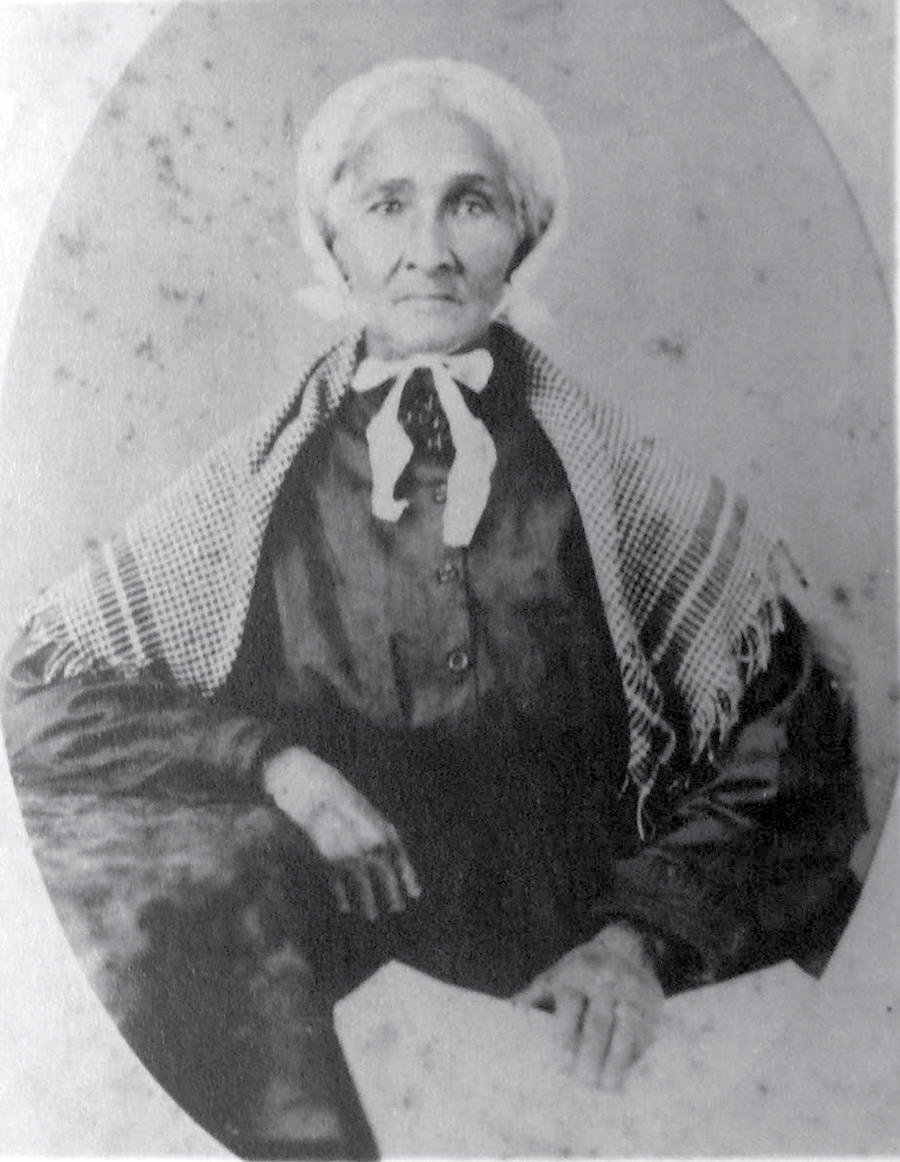
Nancy Belle Graves (18081889)
MARTHA S. JONES
Susan learned a critical lesson in those years: without the vote, Black Americans had to build other routes to political power. Racism kept Black Kentuckians to the sidelines on Election Day, but Susan got busy. She banded together with friends and neighbors to form a Black womens club that linked them to thousands of women across the country, in a movement that would use political power to ensure the dignity of all humanity. When the Nineteenth Amendment was adopted in 1920, Susan knew it was a new chance for her and women like her. I cant say precisely what she did in that moment, though I like to think that she steered her buggy from her home on the edge of Danville to the voting precinct office. White commentators in Kentucky certainly worried that she would do just that. Black women, they feared, might outnumber white women at the polls and tip the balance in favor of the Republican Party. Likely Susan didnt worry about that one bit. The potential for an upset would have been just what she had in mind.


